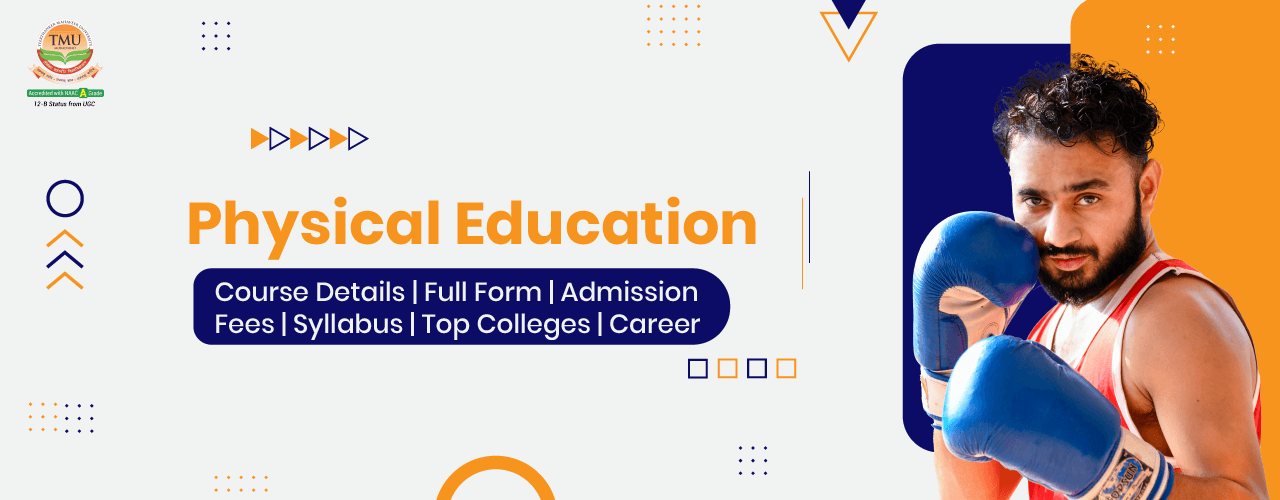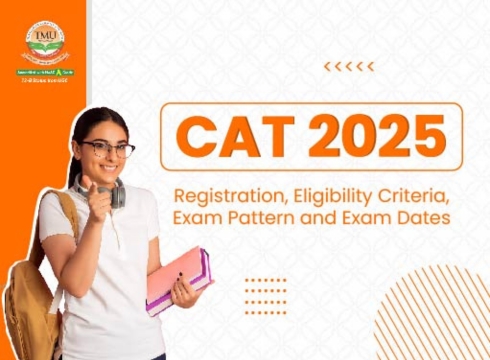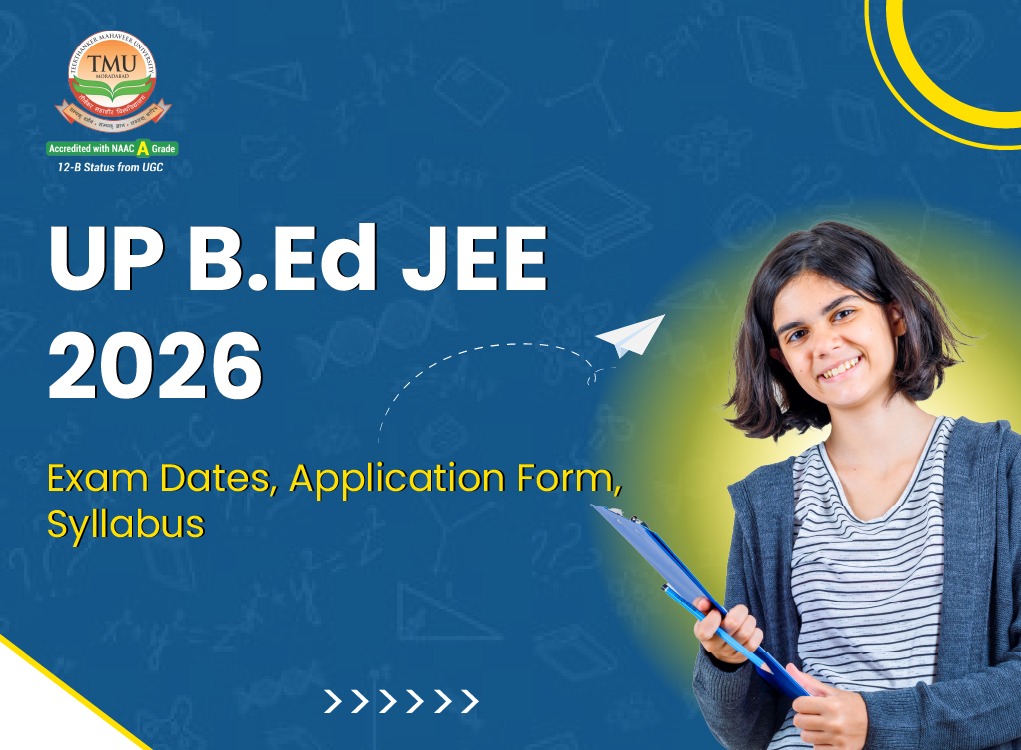Physical Education Course Details, Full Form, Admission, Fees, Subject, Colleges and Career
Table of Contents
The PE Full Form is Physical Education. It's a program that goes beyond gym class. It focuses on developing a rounded understanding of physical activity. It covers its role in a healthy lifestyle.
The Physical Education eligibility varies depending on the level of participation. At school, all students must usually take PE classes. There are no specific eligibility requirements. PE serves as a foundation for physical literacy and basic fitness.
PE encompasses a wide range of program types. General PE introduces students to many activities. These include swimming, team sports, dance, and fitness. Adapted PE helps students with disabilities. It modifies activities and environments to ensure everyone can participate and benefit.
The duration of PE programs also varies. At the school level, PE is typically integrated throughout a student's school career. Higher education programs can be short certificate programs or full degrees. Bachelor's degrees in Physical Education (BPE) typically last 3-4 years. Master's degrees in Physical Education (MPE) take 2 years
We’ll discuss the wide range of scope for Physical Education Graduates and also the plethora of Physical Education Fees.
Physical Education (PE) Full Form
PE stands forPhysical Education. Simply put, it focuses on providing students with holistic educational development through physical activity and fitness. To accomplish this, the discipline emphasises different exercises that are meant to improve your motor skills, your physical fitness, and your general health.
Teerthanker Mahaveer University
Apply for Admission
Click Here To Apply for Admission
Types of Physical Education
Physical Education (PE) encompasses a wide range of activities and programs designed to promote physical literacy, knowledge, and skills for lifelong health and well-being. Here's a breakdown of some common types of PE programs:
By Focus:
- General Physical Education (GPE):This is the most common type, offering a broad spectrum of activities like swimming, team sports, dance, gymnastics, and fitness training.
- Adapted Physical Education:This program caters to students with disabilities, modifying activities and environments to ensure everyone can participate and benefit.
- Health Education:This focuses on knowledge and skills for healthy living, covering topics like nutrition, personal hygiene, and substance abuse prevention.
By Skill Level:
- Introductory PE:This introduces basic movement skills, fitness concepts, and sports rules, often targeted towards younger age groups.
- Advanced PE:This builds upon foundational skills, offering more challenging activities and potentially specialising in specific sports or fitness disciplines.
- Intramural Sports:These are organised, non-varsity sports competitions within a school or community, fostering teamwork and friendly competition.
Additionally:
- Outdoor Education:This type of PE incorporates physical activities in nature, like hiking, camping, or whitewater rafting, promoting environmental awareness alongside physical well-being.
- Dance PE:This focuses on various dance styles, promoting body control, coordination, and artistic expression.
- Martial Arts PE: This introduces self-defence principles and techniques, emphasising self-discipline and physical coordination.
At PG and UG Level
Physical Education (PE) offers a variety of programs beyond just school-level classes. Here's a breakdown of some common undergraduate (UG) and postgraduate (PG) courses you can explore:
| Program Level | Program Name | Description | Focus Area |
| UG | Bachelor of Physical Education (BPE) | Core PE degree | Teaching, Coaching, Fitness Management |
| Bachelor of Science (BS) in Sports Science | Scientific approach to physical activity | Sports Performance Analysis, Athletic Training, Research | |
| Bachelor of Science (BS) in Physical Education and Health Education | Combined PE and health curriculum | Teaching PE & Health Education (K-12) | |
| PG | Master of Physical Education (MPE) | Specialisation in PE knowledge | Teaching Leadership, Coaching Specialization, Athletic Program Management |
| Master of Science (MS) in Sports Management | The business side of sports | Sports Marketing, Event Management, Sports Law, Finance | |
| Master of Science (MS) in Exercise Science | Advanced study in exercise science | Research, Sports Performance Analysis, Rehabilitation, Special Populations |
Physical Education Subjects
Physical Education (PE) subjects encompass a diverse range of topics that promote physical literacy, knowledge, and skills for a healthy lifestyle. Here's a breakdown of some common PE subject areas:
| Category | Subjects | Description |
| Foundational Skills | Locomotion | Develop basic movement patterns like walking, running, jumping, skipping, and hopping. |
| Non-Locomotion | Develops skills like balancing, bending, twisting, and rolling. | |
| Manipulative Skills | Teaches object control through throwing, catching, striking, and dribbling balls. | |
| Sports & Activities | Team Sports | Introduces rules, strategies, and collaboration in sports like basketball, volleyball, soccer, or cricket. |
| Individual Sports | Develops skills and techniques in activities like gymnastics, swimming, tennis, or badminton. | |
| Outdoor Activities | Explores physical activities in nature like hiking, camping, or orienteering, promoting environmental awareness. | |
| Dance | Covers various styles like ballet, folk dance, or modern dance, fostering body awareness and artistic expression. | |
| Martial Arts | Introduces self-defence principles and techniques from disciplines like karate, judo, or taekwondo, emphasising focus, discipline, and coordination. | |
| Fitness & Wellness | Cardiovascular Fitness | Explores activities that improve heart health and endurance (e.g., running, swimming). |
| Muscular Strength & Endurance | Focuses on exercises that build muscle strength and stamina (e.g., weight training, callisthenics). | |
| Flexibility | Develops a range of motion and improves overall mobility (e.g., stretching exercises). | |
| Lifetime Activities | Introduces physical activities suited for long-term participation (e.g., yoga, Pilates, walking programs). | |
| Knowledge & Theory | Health & Nutrition | Teaches students about healthy eating, good nutrition practices, and their impact on physical performance and well-being. |
| Physiology in Exercise | Provides a basic understanding of the body's response to physical activity, including cardiovascular and respiratory systems. | |
| Safety & Injury Prevention | Emphasises safe practices during physical activities and basic first aid skills. |
Importance of Physical Education
What is the Importance of Physical Education? Physical Education (PE) plays a vital role in a well-rounded education, extending far beyond just physical activity. Here's a breakdown of its key benefits:
Physical Health and Development:
- Promotes Fitness: Encourages regular physical activity, leading to improved cardiovascular health, muscular strength, and endurance.
- Develops Motor Skills: Refines coordination, balance, agility, and flexibility, creating a foundation for various physical activities.
- Reduces Risk of Chronic Diseases: Helps maintain a healthy weight and reduces the risk of developing chronic diseases like obesity, diabetes, and heart disease.
Mental and Emotional Well-being:
- Reduces Stress and Anxiety: Physical activity is a natural stress reliever, promoting feelings of relaxation and improved mood.
- Boosts Self-Esteem: Achieving goals and mastering new skills can enhance confidence and self-worth.
- Develops Social Skills: Team sports and group activities foster teamwork, communication, and cooperation skills.
Cognitive Benefits:
- Enhances Brain Function: Regular physical activity improves focus, concentration, memory, and cognitive function.
- Supports Academic Performance: Studies show a correlation between physical activity and academic achievement.
Lifelong Habits:
- Instils a Love for Movement: PE creates positive experiences with physical activity, encouraging lifelong participation in sports or fitness routines.
- Promotes Healthy Lifestyle Choices: PE fosters an understanding of healthy living, influencing dietary habits and overall well-being.
Overall, Physical Education equips students with the knowledge, skills, and confidence to lead healthy and active lives.
Physical Education Eligibility Criteria
Eligibility criteria for Physical Education (PE) programs can vary depending on the program type and level of study. Here's a general breakdown:
School-Level PE:
- Typically No Formal Requirements:Participation in school-level PE classes is usually mandatory for all students and doesn't have specific eligibility criteria.
Adapted Physical Education:
- Doctor's Recommendation (Optional):In some cases, a doctor's recommendation or Individualized Education Program (IEP) might be required for students with disabilities to participate in adapted PE programs.
Extracurricular Sports:
- Age and Skill Level (Informal):Participation in extracurricular sports might have informal age and skill level requirements to ensure safety and fair competition.
Higher Education PE Programs (Certificate, Diploma, or Degree):
- High School Diploma or Equivalent:Most undergraduate PE programs require a high school diploma or General Education Development (GED) certificate.
- Minimum GPA Requirements (Optional):Some programs might have minimum GPA requirements in core subjects like science or math.
- Physical Fitness Tests (Optional):A few programs might require physical fitness tests to assess an applicant's basic fitness level and suitability for the program.
Additional Considerations:
- Background Checks:Criminal background checks might be required for PE programs involving work with children.
- First Aid/CPR Certification (Optional):Some programs might recommend or require first aid/CPR certification, particularly for those focusing on coaching or leadership roles.
Physical Education Entrance Exams
While some Physical Education (PE) programs, particularly at the school level, may not require formal entrance exams, many undergraduate and postgraduate programs in India do have an entrance exam component. Here's a breakdown of what to expect:
| Factor | Description |
| Entrance Exams Required? | Common for UG & PG programs (may vary) |
| Types of Entrance Exams | |
| * University-Specific Exams | Assess knowledge in core PE subjects & practical skills (fitness, sports) |
| * National Level Exams | CUCET (Central Universities), NIS Exams (Sports Science), State-Level Exams (Govt. Colleges) |
| Who Needs to Take Exams? | |
| * Undergraduate Programs | More common for BPE, BS in Sports Science |
| * Postgraduate Programs | Mandatory for MPE, MS in Sports Management/Exercise Science |
| Tips for Preparation | |
| * Check Exam Requirements | Identify specific exams & gather syllabus |
| * Utilize Resources | Textbooks, online resources, past papers |
| * Consider Coaching (Optional) | Specialised preparation courses |
| * Practice Tests | Sample questions & mock tests for confidence & time management |
| Additional Considerations | |
| * Entrance exams are one factor | Academic records, personal statements, fitness tests/interviews might also be considered |
Top Physical Education Colleges in India
Here are some of the top Physical Education colleges in India for undergraduate and postgraduate programs:
| College Name | Location |
| Lakshmibai National College of Physical Education | Thiruvananthapuram |
| The Indira Gandhi Institute of Physical Education and Sports Sciences | New Delhi |
| Amity School of Physical Education and Sports Sciences | Noida |
| Madras Physical Education and Yoga College | Chennai |
| Sachin Tendulkar Sports Academy | Chennai |
| Moradabad |
Selection Criteria
The selection criteria for admission to these colleges vary but typically include:
- Marks obtained in the qualifying examination (10+2 or graduation)
- Entrance exam scores (if applicable)
- Physical fitness test
- Personal interview
It is important to check the specific admission criteria of the college you are interested in.
Top Government Physical Education Colleges in India
Here’s a list of some of the Top Government Physical Education Colleges in India:
| College Name | Location | Affiliated University |
| Lakshmi bai National College of Physical Education (LNCPE) | Thiruvananthapuram | University of Kerala |
| The Indira Gandhi Institute of Physical Education and Sports Sciences (IGIPESS) | New Delhi | Deemed University |
| University College of Physical Education (UCPE), Bangalore University | Bengaluru | Bangalore University |
| Madras Christian College (MCC) | Chennai | University of Madras |
Physical Education Course Fees in India
The first question that arises in people ’s minds is, What are the fees of Physical Education Courses in India (Government vs. Private Colleges)?
So, The cost of a physical education course in India can vary significantly depending on whether you choose a government or private college. Here's a breakdown:
Government Colleges:
- Fees:Generally much lower than private colleges, ranging from ₹13,000 to ₹1,83,000 per year.
- Reasoning:Government colleges receive funding from the government, allowing them to offer subsidised education.
- Selection:Admission can be competitive due to limited seats and potentially lower fees.
Private Colleges:
- Fees:Wider range, typically starting from ₹40,000 and reaching up to ₹2,00,000 or even higher per year.
- Reasoning:Private colleges rely on student fees to cover costs, leading to higher tuition.
Selection:May have a less competitive application process compared to government colleges.
Physical Education Courses and Fees Offered by TMU
| Courses | Duration | Fees |
| B.P.E.S | 3 years | 15,300/- per sem |
| B.P.E.S with Research | 4 years | 15,300/- per sem |
| B.P.Ed | 2 years | 20,700/- per sem |
| M.P.Ed | 2 years | 20,700/- per sem |
Physical Education Scope
The scope of Physical Education (PE) courses in India is broad and multifaceted, encompassing several key areas:
1. Educational Levels
- School Level: Basic motor skills, physical fitness, and introduction to various sports.
- Higher Secondary Level: Specialised PE courses with both theoretical and practical components.
- Undergraduate and Postgraduate Programmes: Degrees like B.P.Ed. and M.P.Ed., focusing on advanced sports science, management, and physiotherapy.
2. Physical Fitness and Skills
- Focus on cardiovascular fitness, strength, flexibility, and endurance.
- Development of techniques in sports such as cricket, football, and indigenous games like kabaddi and kho-kho.
3. Health and Wellness
- Education on balanced diets, nutrition for athletes, personal and community hygiene, and mental well-being.
4. Career Opportunities
- Roles in teaching, coaching, sports management, sports science, and sports medicine.
5. Extracurricular and Competitive Sports
- Participation in school and college tournaments, and pathways to national and international competitions.
Physical Education Career Options in India
A degree in Physical Education (PE) from India opens doors to a fulfilling career path promoting health and well-being. Here's a glimpse into the exciting possibilities beyond the traditional school teacher role:
In the Education Sector:
- Physical Education Teacher (Schools & Colleges):This classic role involves creating engaging lesson plans, teaching physical literacy, and promoting fitness in students.
- Sports Coach (Schools & Academies):You can coach specific sports like cricket, kabaddi, hockey, or others, nurturing talent and guiding students towards excellence.
- Adapted Physical Education Specialist:This specialised role involves working with students with disabilities, creating inclusive physical activities, and promoting their participation and development.
In Sports and Fitness:
- Personal Trainer:Design personalised fitness programs catering to individual needs and goals, helping clients achieve their fitness aspirations.
- Fitness Instructor:Lead group exercise classes like aerobics, yoga, Zumba, or strength training, motivating participants and creating a fun fitness environment.
- Sports Therapist/Athletic Trainer:Apply your knowledge of anatomy and exercise science to help athletes prevent injuries, manage rehabilitation, and optimise performance.
- Sports Administrator/Manager:Take charge of organising sporting events, managing teams or facilities, handling logistics, and ensuring smooth operations.
Other Interesting Avenues:
- Sports Psychologist:With additional training, you can provide mental health support to athletes, helping them manage stress, enhance focus, and build mental resilience.
- Sports Journalist/Broadcaster:Leverage your passion for sports and communication skills to report on sporting events, analyse games, and engage audiences.
- Recreation Specialist:Develop and lead recreational programs in community centres, parks, or resorts, catering to various age groups and promoting healthy leisure activities.
- Sports Marketing Professional: Promote sports products, events, or athletes, utilising your understanding of the sports industry and marketing principles.
Physical Education Teacher/Professor Salary
The salary for Physical Education (PE) teachers and professors in India can vary depending on several factors, including:
- Experience:Salaries generally increase with experience.
- Location:Teachers in major cities typically earn more than those in rural areas.
- School/College Type:Government institutions usually offer lower salaries compared to private schools/colleges.
- Qualification:Professors at universities might earn more than PE teachers at schools.
Here's a general idea of the salary range for PE teachers/professors in India:
- PE Teacher (School):₹258,000 to ₹840,000 per year (Source: Talent.com [invalid URL removed])
- PE Professor (University):Information on professor salaries can be harder to find. Estimates suggest an average of around ₹9,13,657 per year.
| Position | Salary Range (₹ per year) |
| Physical Education Teacher (School) | 258,000 - 840,000 |
| Physical Education Professor (University) | Information Limited |
Conclusion
Physical Education (PE) offers far more than just gym class. It equips students with the knowledge, skills, and passion for a lifetime of healthy living. From developing core motor skills to promoting teamwork and emotional well-being, PE fosters well-rounded individuals prepared for success.
This guide explored the diverse landscape of PE courses in India, encompassing eligibility criteria, entrance exams, and esteemed colleges like Lakshmibai National College of Physical Education and Indira Gandhi Institute of Physical Education and Sports Sciences. We delved into the financial aspects, highlighting the cost variations between government and private colleges.
Beyond academics, a PE degree unlocks a treasure trove of career opportunities. You can embark on a rewarding journey as a Physical Education Teacher, a Coach, or a Fitness Instructor, inspiring others to embrace an active lifestyle. The world of Sports Management, Sports Science, and even Recreation also beckons PE graduates.
So, if you possess a passion for health, sports, and making a positive impact, a career in Physical Education might be your perfect match. With dedication and the right qualifications, you can become a leader in promoting lifelong health and well-being!
FAQs
Q1: What do you mean by physical education?
A: Physical education (PE) is a school curriculum component focused on promoting physical fitness and teaching students the principles and practices of maintaining a healthy lifestyle.
Q2: What is the main purpose of physical education?
A: Physical education's core mission is to equip students with the tools for a healthy, active life. This means building foundational movement skills, promoting fitness, and fostering a love for movement. Beyond the physical, PE benefits mental well-being, focus, and even academic performance. It's a foundation for lifelong health!
Q3: Which degree is best for physical education?
A: A Bachelor's degree in Physical education, exercise science, or kinesiology is typically the best option for a career in physical education.
Q4: Who is eligible for BPEd ?
A: Eligibility for a Bachelor of Physical Education (BPEd) typically includes:
- Completion of 10+2 (or equivalent) from a recognised board.
- Some institutions may require a background in physical education or sports.
- Meeting the minimum age requirement, usually 17 years.
- Passing any required entrance exams or physical fitness tests, if applicable.


A blog (shortening of "weblog") is an online journal or informational website displaying information in the reverse chronological order, with the latest posts appearing first. It is a platform where a writer or even a group of writers share their views on an individual subject.
More Posts by TMU Blogs












